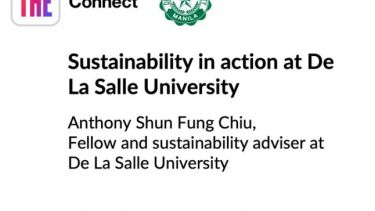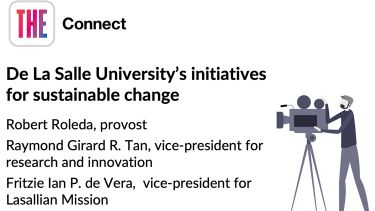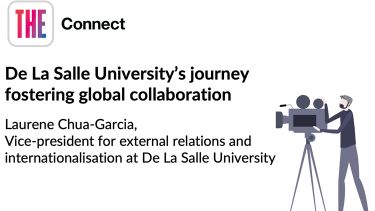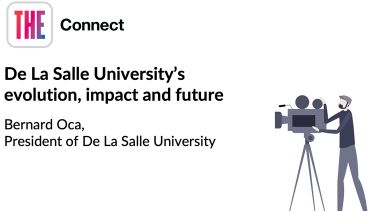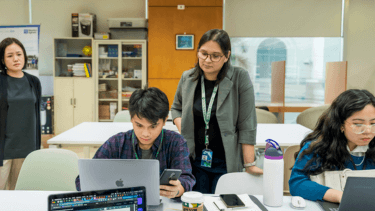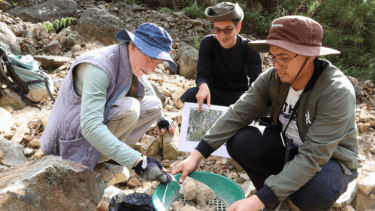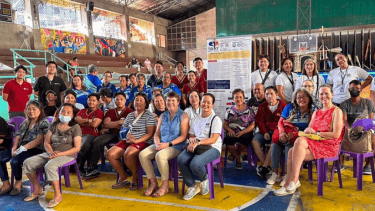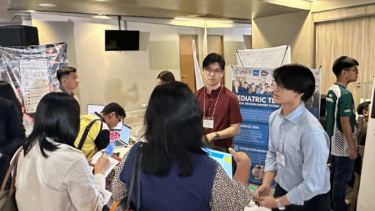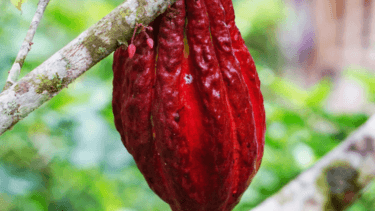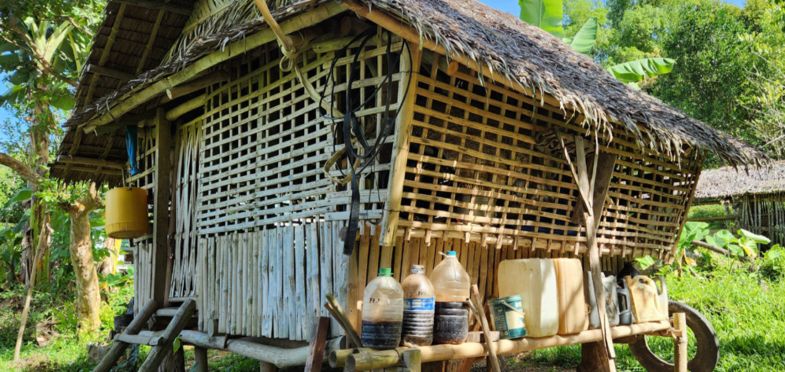
Many smallholder farmers remain in inadequate living conditions and locked in an almost perpetual cycle of debt. Utilizing a theoretical sample approach, an emerging study by a faculty member from the De La Salle University Ramon V. del Rosario College of Business may hold the key to understanding smallholder farmer upliftment and providing support for our local producers.
Providing 90% of the world’s rice food supply, smallholder farmers are a basic and critical part of our civilization’s sustenance. The aggregated farms of the world’s smallholders form only 12% of the world’s total farmland, but the food produced in Asia and sub- Saharan Africa accounts for an estimated 80% of the world’s food production and 90% of rice food supply.
“Technically, smallholder farmers are those working on plots of land which are 3 hectares and below. In the Philippines, however, majority of the farmers are working on less than a hectare of land, which is actually not enough for the farmers to support their livelihood,” says Beata Maria de Ocampo, Financial Management vice chair from the De La Salle University Ramon V. del Rosario College of Business.
De Ocampo recently conducted a series of studies focusing on Filipino smallholders’ resilience against socio-economic and environmental-related challenges. The study gathered first-hand experiences of the Philippines’ local smallholder rice farmers to help identify possible upliftment models for more sustainable solutions.
“My research is about poverty alleviation. So, how did it all start? From the Catholic social teachings we have, we are called to have preferential love for the poor and the vulnerable,” shares de Ocampo, who is also a catechist for the youth. “This is something very close to my heart. My dream is to enrich farmers, one community at a time.”
Her research collected data from selected rice farming communities in the provinces of Quezon, Iloilo, Laguna, and Pangasinan. It shows that a major challenge to local smallholder farmers is their being caught in a seemingly inescapable cycle of debt. “It’s a very complex issue; social, political, economic, and environmental factors are all affecting the livelihood of farmers,” she points out.
She cites, for instance, the use of genetically modified seeds (GMO) that are high-yielding, but require fertilizers and pesticides and, thus, farmers need to buy all the farming inputs for every planting season. She also notes from her study the experiences of CARP (Comprehensive Agrarian Reform Program) grantees who shifted from being tenants to being instant landowners, and eventually were forced to take out loans as they lack the additional and entrepreneurial knowledge to handle the business. They also needed irrigation such that in one interview, the farmers preferred infrastructure support rather than the piecemeal government cash dole-outs (better known locally as ‘ayuda’).
Farmer upliftment models
De Ocampo’s study has identified four farmer upliftment models that could support inclusive growth. The first two models center on the individual farmer’s own improvement, while the other two require a community ‘bayanihan’ approach to help improve the farmers’ conditions.
The first upliftment model (Empowered Farmer) promotes a resilient independent farmer brought about by having a viable source of other income.“I look back at the story of Mang Tino, a proud farmer. Aside from farming, he has poultry and piggery. He freely makes decisions about his farm free from debt, and no one is controlling him,” she explains. On another note, MASIPAG—an agricultural network composed of nongovernmental organizations, scientists, and farmers across the country, promotes viability in farming by providing free organic seeds that are not dependent on expensive farming inputs, e.g., GMO seeds, fertilizers, and pesticides. Such organic seeds can be passed on from generation to generation.
In the second model (Farmer- Entrepreneur), smallholder farmers develop a more entrepreneurial mindset that promotes innovativeness, risk-taking behavior, and proactiveness. She shares the story of another farmer who did not finish grade school but whose entrepreneurial orientation has led him to move into the vegetable business. “He put his own money through a “paluwagan”—this is a system of lending in the Philippines, wherein people in the community would put in money and at certain months of the year, each one would be getting the amount.”
Her third upliftment model (Contract Farming) is a more community-driven approach through a cooperative endeavor among community members. As a cooperative, they deal with entities, whether government or NGOs which assures the existence of a market. Fulfilling individual contractual obligations ensures the survival of each member and the group endeavor overall.
A sustainable way of farming
The End-to-End Value Chain Model is the fourth upliftment model, which requires the adequate attention and full support of the local government. The LGU provides the initial capitalization, assets, and staffing to assist the farmer association in production, research, development, and product marketing. This provides a more business- enabling environment for the local farmers by eliminating the use of intermediaries who dictate farmgate prices. This also gives them the opportunity to sell types of crops according to seasonal demand as coordinated by the Department of Agriculture to meet contractual obligations for produce at a reasonable price.
De Ocampo believes that the emphasis on sustained farming support, entrepreneurial education, financial literacy, and contractual obligation are what our smallholder farmers need to gain a better understanding of a more resilient and sustainable way of farming.
“It is very important for the youth to still be interested in agriculture. It’s been a problem not just in the Philippines but in the world. That’s why many governments incentivize the youth to engage in agribusiness. The children just need to see that this is viable and it gives them dignity. But it really starts with uplifting the condition of the family, especially the farmers,” she further adds.
Contact: Ms. Beata Maria de Ocampo | beata.deocampo@dlsu.edu.ph

